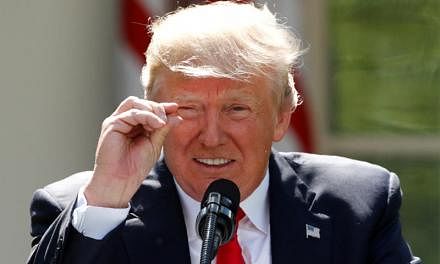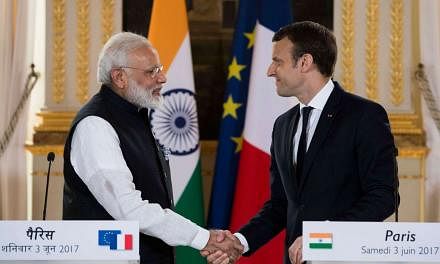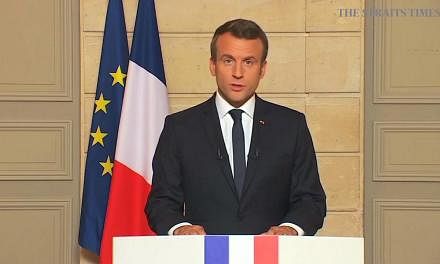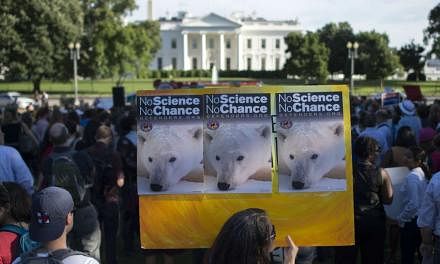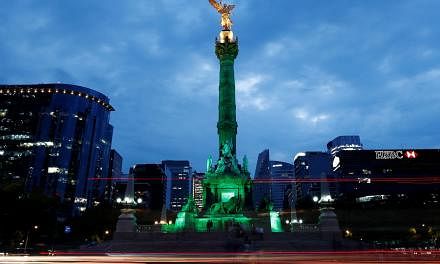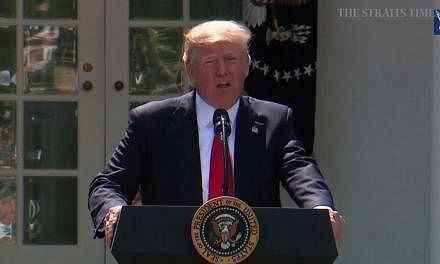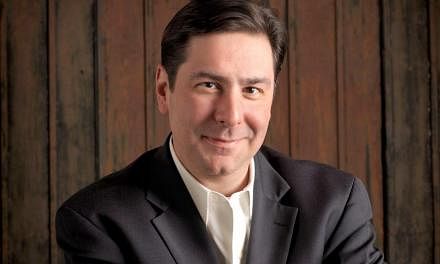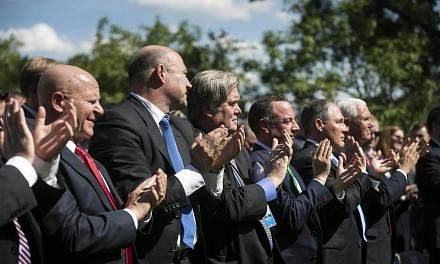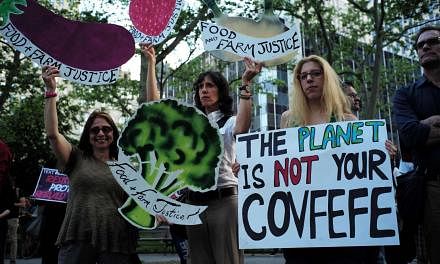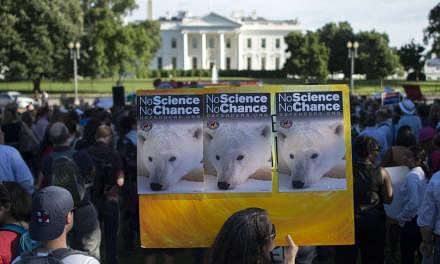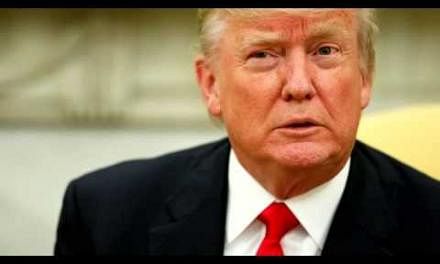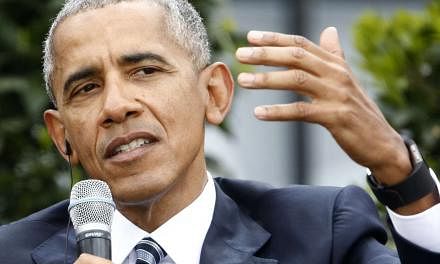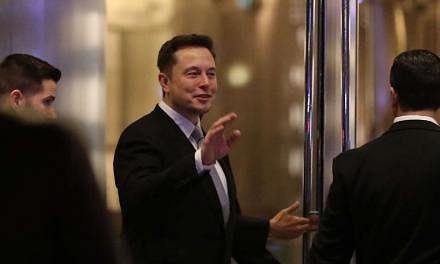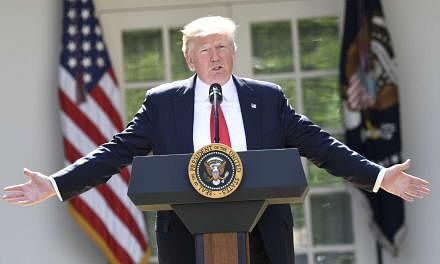SINGAPORE -The United States has announced its intention to withdraw from the Paris climate pact, to the dismay of climate change advocates around the world. But countries, including Singapore, are standing firm on their commitments to reduce their greenhouse gas emissions, in a bid to ward off the effects of catastrophic climate change. The Straits Times speaks to scientists and advocates of climate change here to find out what the US' decision could mean for Singapore.
How would Singapore be affected by climate change if the US pulls out of the deal?
Ms Melissa Low, a research fellow at the National University of Singapore's (NUS) energy Studies institute, says:
"President Trump's pulling the US out of the Paris Agreement makes it more difficult for the world to meet the Paris Agreement's goal of keeping global temperature rises under 2 deg C, given that the US is the second largest contributor of greenhouse gas emissions.
"Singapore will likely have to deal with adverse effects of climate change that may occur sooner should the US' emissions trajectory take an upward turn."
How would this affect climate research in Singapore?
The impact could be two-fold.
First, funds for climate research could be affected.
Dr Erik Velasco, an independent air quality scientist based in Singapore,says:
"Trump's policies and severe cuts to agencies such as the Environment Protection Agency, the National Oceanic and Atmospheric Administration, and National Aeronautics and Space Administration would hurt scientific research on climate change and environmental topics inside and outside the US.
"Unfortunately, many of the research conducted all around the world depends on US funding an collaborations with American partners."
Second, it would mean that local scientists will need to find new partners and data sources.
He says: "In climate change research, many scientists rely on data collected by American institutions. For example, the cuts to NASA's Earth science program will reduce the data used by many local colleagues to initialize and validate their models on climate change impacts over Singapore. Local scientists will have to find new partners and data sources."
NUS' Ms Low is more optimistic saying:
"I believe scientific collaborations on climate research between US and Singapore will continue to forge ahead. Many of these research collaborations are funded by research foundations or universities and independent of US State Department funding. I believe researchers will remain committed to the Paris Agreement and its goals, and will step up to do even more to enable climate action."
At the same time, there could also be opportunities for Singapore:
Says Dr Velasco: "Singapore's National Research Foundation has been cautious and has stablished collaborations with universities and institutions not only from US. I'd expect US institutions and universities to approach Singapore looking for new collaborations. This could also be an opportunity to boost Singapore's position as leader on scientific research on climate change, particularly in the tropics."
How would this affect youth and non-government organisation delegations that work on climate change in this region?
Ms Nor Lastrina Hamid, 27, a young Singaporean who observed the 2015 Paris climate conference as part of a youth non-governmental organisation, says:
" I am more worried that programmes like the Young Southeast Asian Leaders Initiative (YSEALI), which has an environment track, gets cut off. Climate change as a global issue requires global efforts, trickling down to regional and national level efforts, such as workshops. They bring together individuals from various countries together to share successes, challenges, and knowledge, and to spur action back home.
"Initiatives like YSEALI, for example, help to build capacity of young leaders who would go back to their home countries to run their own projects, and scale the climate action movement. For example, out of YSEALI Academic track, which usually targets university students, the Chili Padi Academy was created. It is an environmental leadership program targeting high school students from Malaysia, Indonesia, Singapore. I see programmes like this as a very concrete effort by youth to address climate change at the regional level."
Correction Note: An earlier version had the wrong name for the institute Ms Melissa Low represented. This has been corrected. We are sorry for the error.


